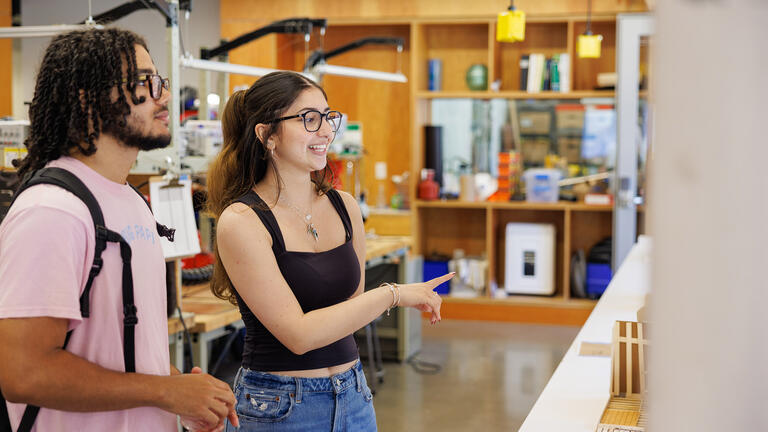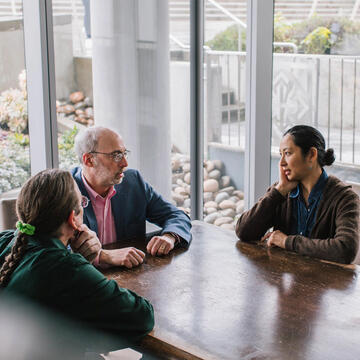
Accreditation
The USF engineering program is designed to meet the requirements for professional accreditation by ABET, the agency which oversees accreditation of engineering programs.
On this page, you will find a statement of outcomes for the program, required by ABET. This includes Program Educational Objectives, which describe our future graduates three to five years after graduating, and provide a link between USF's Mission, Vision, and Values, and those of our program, and Student Outcomes, which are skills and mindsets to be achieved by graduation, and prescribed by ABET.
Program Educational Objectives
USF Engineering succeeds in its mission by graduating students who meet our four Program Educational Objectives to:
- Engage in an engineering process applying creative problem solving techniques and technical skills based on previous experiences, curiosity and a commitment to continuous learning.
- Seek opportunities to practice engineering which values diverse communities, and integrates multiple perspectives through collaborative teamwork.
- Develop a professional identity fortified by integrity, interdisciplinary engineering knowledge, passion, self awareness, mentorship, leading by example and modeling of values.
- Integrate values of social justice and environmental sustainability into engineered solutions and consider impacts on individuals and communities.
Student Outcomes
Our degree program will be meeting the requirements for professional accreditation by ABET, the agency which oversees accreditation of engineering programs. ABET requires a two-part statement of outcomes – in addition to the Program Educational Objectives stated above as part of the Mission, we will meet the following Student Outcomes.
Students will achieve an ability to:
- Identify, formulate, and solve complex engineering problems by applying principles of engineering, science, and mathematics
- Apply engineering design to produce solutions that meet specified needs with consideration of public health, safety, and welfare, as well as global, cultural, social, environmental, and economic factors
- Communicate effectively with a range of audiences
- Recognize ethical and professional responsibilities in engineering situations and make informed judgments, which must consider the impact of engineering solutions in global, economic, environmental, and societal contexts
- Function effectively on a team whose members together provide leadership, create a collaborative and inclusive environment, establish goals, plan tasks, and meet objectives
- Develop and conduct appropriate experimentation, analyze and interpret data, and use engineering judgment to draw conclusions
- Acquire and apply new knowledge as needed, using appropriate learning strategies
How We're Preparing for Accreditation
Our accreditor, ABET, requires all new engineering programs to conduct their entire four-year curriculum and produce at least one graduate before applying for accreditation. Therefore, in 2024 (the fifth year of the program), the USF engineering program is undergoing a complete initial accreditation review, including a site visit by ABET Program Evaluators in the Fall of 2024.
As of summer of 2024, we have submitted our Self Study and application for initial accreditation, and are preparing for the ABET review visit this fall.
